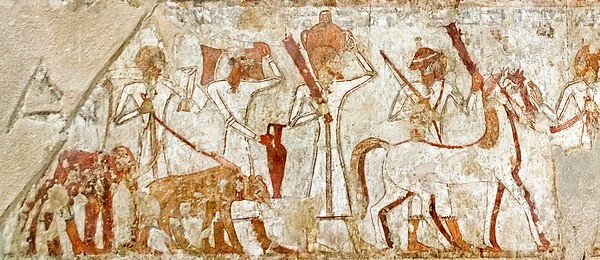
On 25 January 2011, widespread protests began against Mubarak’s government. On 11 February 2011, Mubarak resigned and fled Cairo. Jubilant celebrations broke out in Cairo’s Tahrir Square at the news. The Egyptian military then assumed the power to govern.[100][101] Mohamed Hussein Tantawi, chairman of the Supreme Council of the Armed Forces, became the de facto interim head of state. On 13 February 2011, the military dissolved the parliament and suspended the constitution.
A constitutional referendum was held on 19 March 2011. On 28 November 2011, Egypt held its first parliamentary election since the previous regime had been in power. Turnout was high and there were no reports of major irregularities or violence. Mohamed Morsi, who was affiliated with the Muslim Brotherhood, was elected president on 24 June 2012. On 30 June 2012, Mohamed Morsi was sworn in as Egypt’s president. On 2 August 2012, Egypt’s prime minister Hisham Qandil announced his 35-member cabinet comprising 28 newcomers, including four from the Muslim Brotherhood. Liberal and secular groups walked out of the constituent assembly because they believed that it would impose strict Islamic practices, while Muslim Brotherhood backers threw their support behind Morsi. On 22 November 2012, President Morsi issued a temporary declaration immunising his decrees from challenge and seeking to protect the work of the constituent assembly.
The move led to massive protests and violent action throughout Egypt. On 5 December 2012, tens of thousands of supporters and opponents of President Morsi clashed, in what was described as the largest violent battle between Islamists and their foes since the country’s revolution. Mohamed Morsi offered a “national dialogue” with opposition leaders but refused to cancel the December 2012 constitutional referendum. On 3 July 2013, after a wave of public discontent with autocratic excesses of Morsi’s Muslim Brotherhood government,[115] the military removed Morsi from office, dissolved the Shura Council and installed a temporary interim government.
On 4 July 2013, 68-year-old Chief Justice of the Supreme Constitutional Court of Egypt Adly Mansour was sworn in as acting president over the new government following the removal of Morsi. The new Egyptian authorities cracked down on the Muslim Brotherhood and its supporters, jailing thousands and forcefully dispersing pro-Morsi and pro-Brotherhood protests. In the elections of June 2014, Abdel Fattah el-Sisi won with a percentage of 96.1%. On 8 June 2014, Abdel Fatah el-Sisi was officially sworn in as Egypt’s new president. In April 2018, El-Sisi was re-elected by a landslide in election with no real opposition.In April 2019, Egypt’s parliament extended presidential terms from four to six years. President Abdel Fattah al-Sisi was also allowed to run for a third term in the next election in 2024.Under El-Sisi Egypt is said to have returned to authoritarianism. New constitutional reforms have been implemented, meaning strengthening the role of military and limiting the political opposition.
Geography and Climate
Apart from the Nile Valley, the majority of Egypt’s landscape is desert, with a few oases scattered about. Winds create prolific sand dunes that peak at more than 30 metres (100 ft) high. Egypt includes parts of the Sahara desert and of the Libyan Desert. Towns and cities include Alexandria, the second largest city; Aswan; Asyut; Cairo, the modern Egyptian capital and largest city; Most of Egypt’s rain falls in the winter months. South of Cairo, rainfall averages only around 2 to 5 mm (0.1 to 0.2 in) per year and at intervals of many years. On a very thin strip of the northern coast the rainfall can be as high as 410 mm (16.1 in), mostly between October and March.







